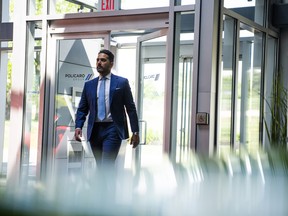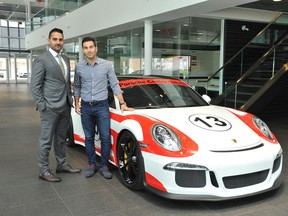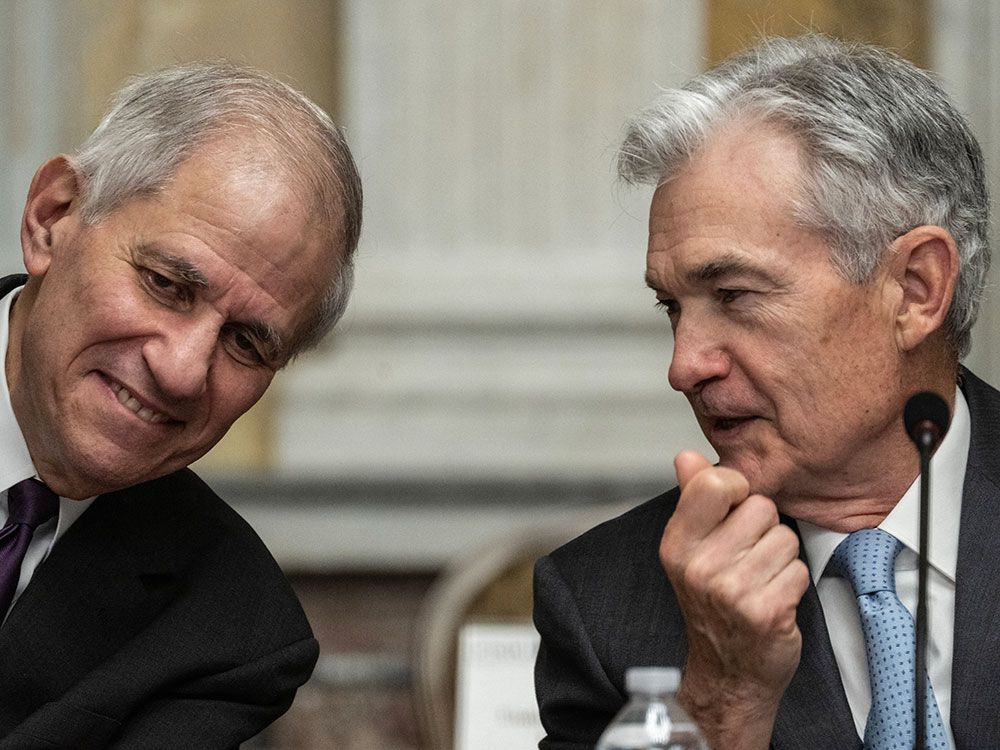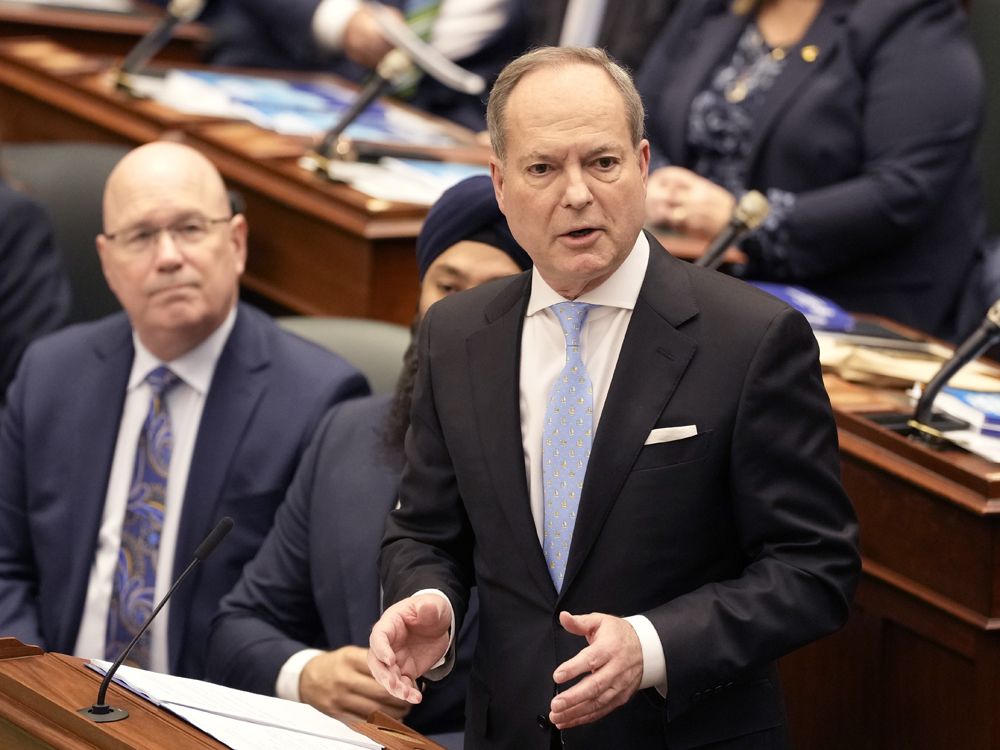How Francesco Policaro helped turn a single car dealership into a half-billion-dollar business

Policaro says the key to his company’s success is simple: Respect everyone

Article content
When most teenage boys were chasing a soccer ball or their first kiss, Francesco Policaro began chasing his dream, selling his first car while still in high school.
Advertisement 2
Story continues below
Article content
“I was the type of kid who tore through Car and Driver and Road & Track magazines,” he says.
Peddling that pre-owned 1992 Acura Vigor was a prelude to a career in car sales that has fast-tracked the 46-year-old into the driver’s seat as CEO of one of the leading car sales groups in the country. It was at the feet of his father and uncles who emigrated from Italy in the 1960s that Policaro came to love cars.
“I was a dealership rat. I was always around the store and loved it, so I’ve been around it my entire life. And being around the business side of the automotive industry since I was very young, it was just very natural for me.”
The brothers — Basil, Tony and Paul — worked their way up from delivering parts and pumping gas to selling cars.
Advertisement 3
Story continues below
Article content
In 1979, they bought a dealership in the Toronto area — Satellite City Honda — and four years later added a Hyundai dealership in nearby Brampton, Ont., which drew attention by offering a free car wash with every service visit.

That first flirtation with offering something different, something that stood out to the customer, stuck with Policaro, who says the key to his company’s success is simple: Respect everyone.
“It’s how we treat people, how we treat the community — it’s authentic,” says Policaro, whose company pays a $17.50 per hour living wage to starting workers and is involved extensively in giving back to society through the Policaro Foundation, which donates money to pediatric centres in hospitals across Ontario.
Advertisement 4
Story continues below
Article content
By 1987, the Policaro brothers had opened the first Acura dealership in Canada, and in the ensuing four decades, the Policaro Group has blossomed into a half-billion-dollar — and growing — organization with six dealerships across southern Ontario. The latest additions are in the luxury market: Land Rover, Porsche, Jaguar, Volvo and BMW dealerships in the Kitchener-Waterloo and Etobicoke, Ont., areas. The group also owns four ancillary businesses: Policaro Performance, Policaro Motorsport, Policaro Leasing and Motion Endeavours.
Policaro says when making such a significant purchase, especially when it’s a luxury purchase, customers are more likely to take a hands-on approach. They want to see the car. Touch it. Drive it.
Advertisement 5
Story continues below
Article content
“Customers are very passionate about dealing with that specific brand and so there’s still an appetite for a brand immersion where they like to come in and really experience the brand, get some professional advice and some professional knowledge even though they’re doing the majority of their research online.”
And make no mistake, society’s migration to online shopping does not zoom past higher-end vehicles. “What we saw during COVID was a move towards e-commerce and digitization and less contact during the customer journey of the buying process, so these are all things that are definitely going to change and reshape our business.”

To that end, the Policaro Group has been at the forefront of consumer-friendly technology that allows the customer to get into the car game without leaving the house. During the pandemic it unveiled Policaro Access, an AI-driven software that offers customers various options to test drive and purchase vehicles and can track a vehicle being delivered to their door.
Advertisement 6
Story continues below
Article content
While Policaro foresees a shift in the business model, closer to an Amazon system where a car is only a click away, he feels brick-and-mortar dealerships in the high-end automotive sector are on solid footing.
“Although things are changing and I think we’ll continue to see an uptick in the number of people who will transact online and the number of people that will engage us online and want to do a little more online to create a little bit more of a frictionless and maybe contactless experience, I think that will happen gradually over time and we will still be one of the last industries to go completely online,” he says.
Recent disruptions in the automotive industry, including breaks in the supply chain have left dealerships carrying fewer cars and trucks. And the COVID-19 pandemic hasn’t made for the best time to be selling high-end vehicles. But Policaro is confident those in the industry willing to switch gears will not only survive, but thrive.
Advertisement 7
Story continues below
Article content
-

‘Look for the sunshine:’ Linamar founder Frank Hasenfratz was the ultimate optimist
-

‘Don’t take no for an answer’: Jennifer Wong’s remarkable rise from Aritzia salesperson to CEO
-

Belinda Stronach’s big bet on the sport of kings
-

Making hay in Margaritaville: Billionaire Canadian developer hits Jimmy Buffett-branded lifestyle community home run
“We constantly have customers coming in to build their brand new car and configure their vehicle, and they have questions that may require answers from people who do it everyday and who have the experience and the knowledge to say ‘hey these are the options that you’ve selected and here are some options that we think you should have on the car for ABC reasons,’ so there’s still that reliance on and dependence on some professional advice.”
Advertisement 8
Story continues below
Article content
He says when it comes to buying a car, the test drive remains the acid test. And that test is best performed at a dealership.
“When you’re doing that from home, one vehicle comes out to you, but that may not be the perfect vehicle for you. There are different powertrains, there are different levels of power, different vehicles to try and so I think the test drive is still one of the major reasons why customers would come visit us.”
While Policaro says he can see self-driving vehicles hitting our roadways likely by the “mid-2030s, maybe 2040”, there always will be a role on the retail side to look after those clients.
“I still think that people will continue to have a need, or at least there be a demand for personal vehicles, even when they are autonomous, to have that privacy and that sense of independence. There’s always fear with the unknown as there’s change, but we’ve been very resilient in this industry.”
Advertisement
Story continues below









